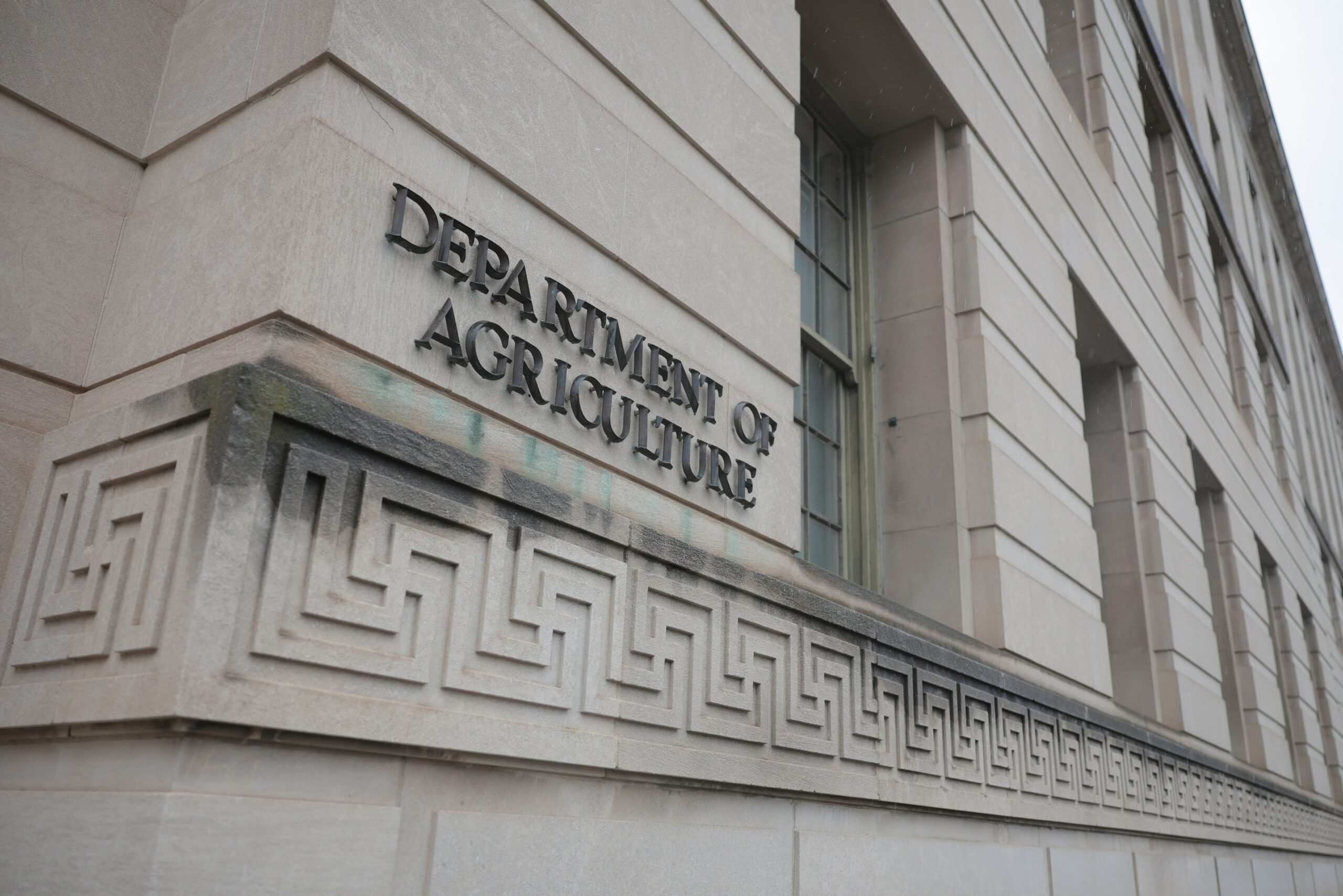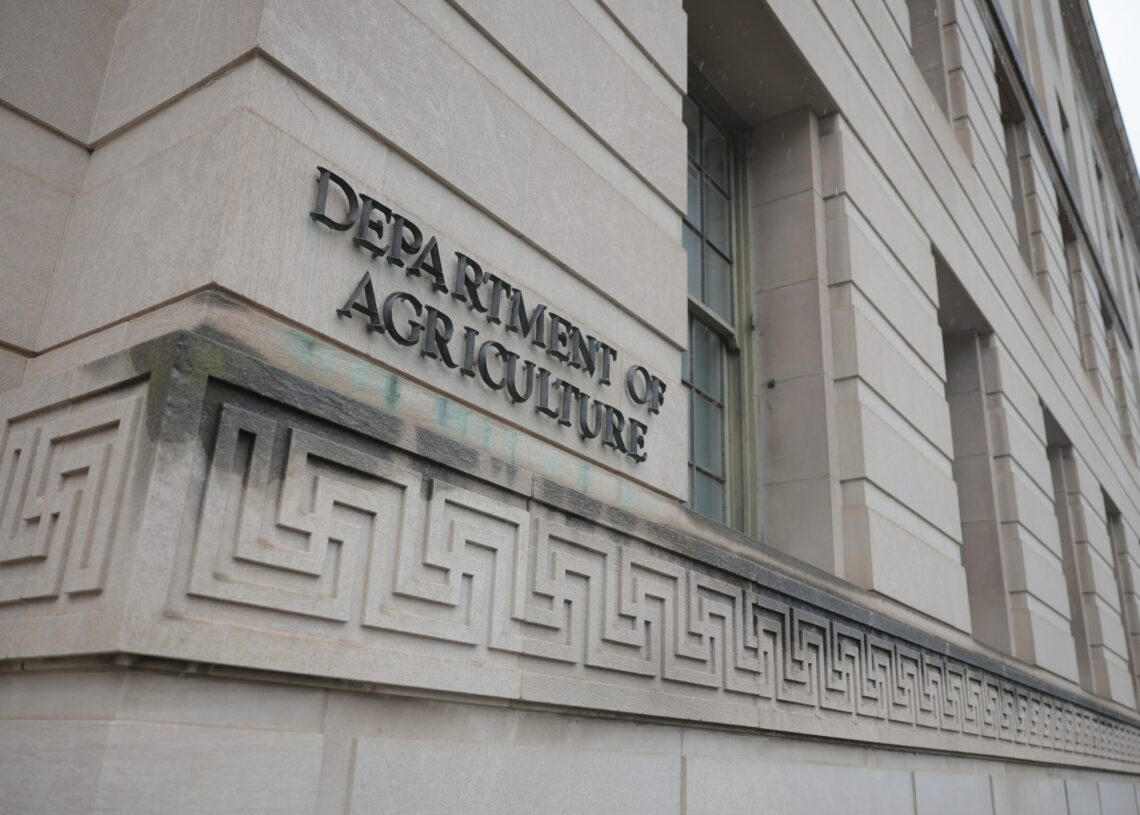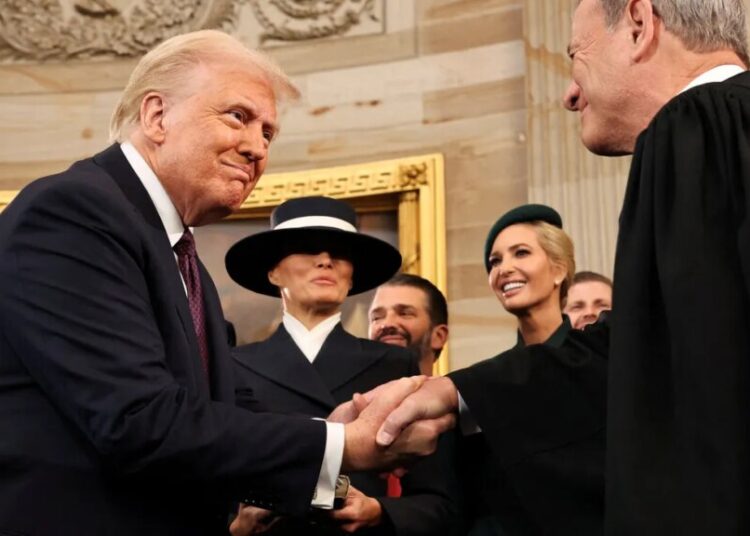
The Agriculture Department is preparing to fire an employee in the division that handles food benefits after she publicly warned that the shutdown could have negative impacts on the millions of Americans who rely on the federal government to put food on the table, according to documentation reviewed by The Washington Post.
The Agriculture Department is preparing to fire an employee in the division that handles food benefits after she publicly warned that the shutdown could have negative impacts on the millions of Americans who rely on the federal government to put food on the table, according to documentation reviewed by The Washington Post.
The employee, Ellen Mei, a program specialist at the Food and Nutrition Service who is furloughed, was interviewed on MSNBC on Oct. 2, during the early days of the shutdown, to talk about how the impasse in Washington would impact her team, as well as the work they do. Mei is also president of the National Treasury Employees Union’s Chapter 255, which represents employees at USDA’s Food and Nutrition Service in the Northeast.
In the four-minute interview, Mei said she and her co-workers are “anxious because we’re hearing about the risk potentials and office closures that are looming over USDA as this shutdown kind of drags on.” She also explained that funding for key food assistance programs, including the Supplemental Nutrition Assistance Program (SNAP) — which feeds about 42 million Americans monthly — would probably be available in October, but that “things might get a little dicey if this drags on into November.”
The next day, USDA informed Mei that the process to remove her from her position had begun. In correspondence reviewed by The Post, an official in the USDA human resources department told Mei that she will be let go 30 days after the shutdown ends. The agency accused Mei of discussing USDA programs and funding “without prior approval.”
USDA did not immediately respond to a request for comment.
The threat of Mei’s dismissal has sparked concerns and outrage among other USDA workers and members of the Federal Unionists Network, who argue that the move is part of a concerted effort by the Trump administration to chill speech among federal employees.
At the time Mei spoke to MSNBC, the information she shared was publicly available through a variety of news articles and guidance from anti-hunger advocates, think tanks and organizations.
USDA itself, in a memo dated Sept. 30, explained that SNAP funding would lapse because of the shutdown and that the Office of Management and Budget would use contingency reserves to pay for benefits past October. That memo, however, was scrubbed from the agency’s website later in October, once the Trump administration began arguing against tapping contingency funds to pay for benefits.
In the MSNBC interview, host Chris Jansing also explained that Mei was speaking as herself and a union leader, not as a USDA employee.
In an interview with The Washington Post, Mei said she has made other media appearances while employed as a USDA worker and while serving as a union leader.
Mei, who is based in Boston, has repeatedly appeared in coverage by the Boston Globe and local radio station GBH. She has also released public statements in her role with the Federal Unionists Network, including one issued two days before the shutdown began, in which she and other federal union leaders urged lawmakers to oppose any budget deal that would raise the cost of health care or weaken federal programs.
Mei said she believes she is being retaliated against because the MSNBC appearance was her first appearance on national television. In the USDA letter reviewed by The Post, the human resources official told Mei that “although you were not on duty at that time, the actions you took directly relate to your position because they involved programs under your official responsibilities.”
“As I was and have been speaking in my personal capacity and in my capacity as union representative, I am not required to ask for permission to speak on behalf of me or my co-workers,” Mei told The Post. “Especially speaking on behalf of my co-workers as the union president, that is a right that I am granted by the Federal Labor Management statute. So I do not need to ask for permission.”
Mei has 30 days from the day the government reopens to contest her dismissal. She plans to appear alongside other unionized federal workers and at a news conference Friday in Boston to protest the agency’s decision.
“This is about sounding the alarm to the public that this administration will stop at nothing … . They will trot over the services we provide and the rights that we have as federal workers and as Americans,” said Chris Dols, co-executive director of the Federal Unionists Network, who is helping organize Mei’s response.
Debra D’Agostino, a federal employment lawyer, argued that Mei probably has a strong case against her dismissal. Mei’s speech was almost certainly protected under both the First Amendment and the Whistleblower Protection Act, D’Agostino said.
There have been at least two Supreme Court cases — Pickering v. Board of Education in 1968 and Department of Homeland Security v. MacLean in 2015 — in which the justices decided in favor of staffers accused by their employers of speaking out of turn, D’Agostino noted. In the first, the court ruled for a teacher who had written to a newspaper criticizing the superintendent, saying the educator had a right to speak on matters of public concern so long as she was not knowingly lying.
In the second, the court ruled for a Transportation Security Administration staffer who the government accused of revealing “sensitive security information” to a reporter. In that case, the court decided the staffer’s activity was covered by the Whistleblower Protection Act, which says federal workers can report lawbreaking or anything that poses a substantial and specific danger to public health and safety.
“Given that we’re talking about food for Americans, that is a pretty clean argument about a specific danger to public health,” D’Agostino said. “I think [Mei] has a very clean argument this is a protected disclosure.”
There have been other instances of the Trump administration cracking down on the speech of federal workers.
Over the summer, after dozens of Environmental Protection Agency employees signed a letter protesting the agency’s direction and policies, the Trump administration placed roughly 140 of them on leave — and later fired at least seven of the staffers.
In September, the administration also dismissed two civil rights lawyers at the Housing and Urban Development Department after speaking out about the Trump administration’s efforts to limit enforcement of the Fair Housing Act. One of the lawyers, Paul Osadebe, told The Post that the type of speech Mei made in her MSNBC interview has always been protected.
“We are the people who are most informed on the operations of the federal government, what it’s doing well, what it’s doing poorly, what it’s doing illegally sometimes,” Osadebe said. “So we’re the ones who have to speak out on that, and we’ve been doing that without an issue for decades, [including during] the first Trump administration. The things that they’re punishing people for now were not punished before.”
The post Trump administration targets worker for TV interview about SNAP impacts
appeared first on Washington Post.




